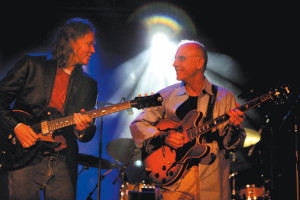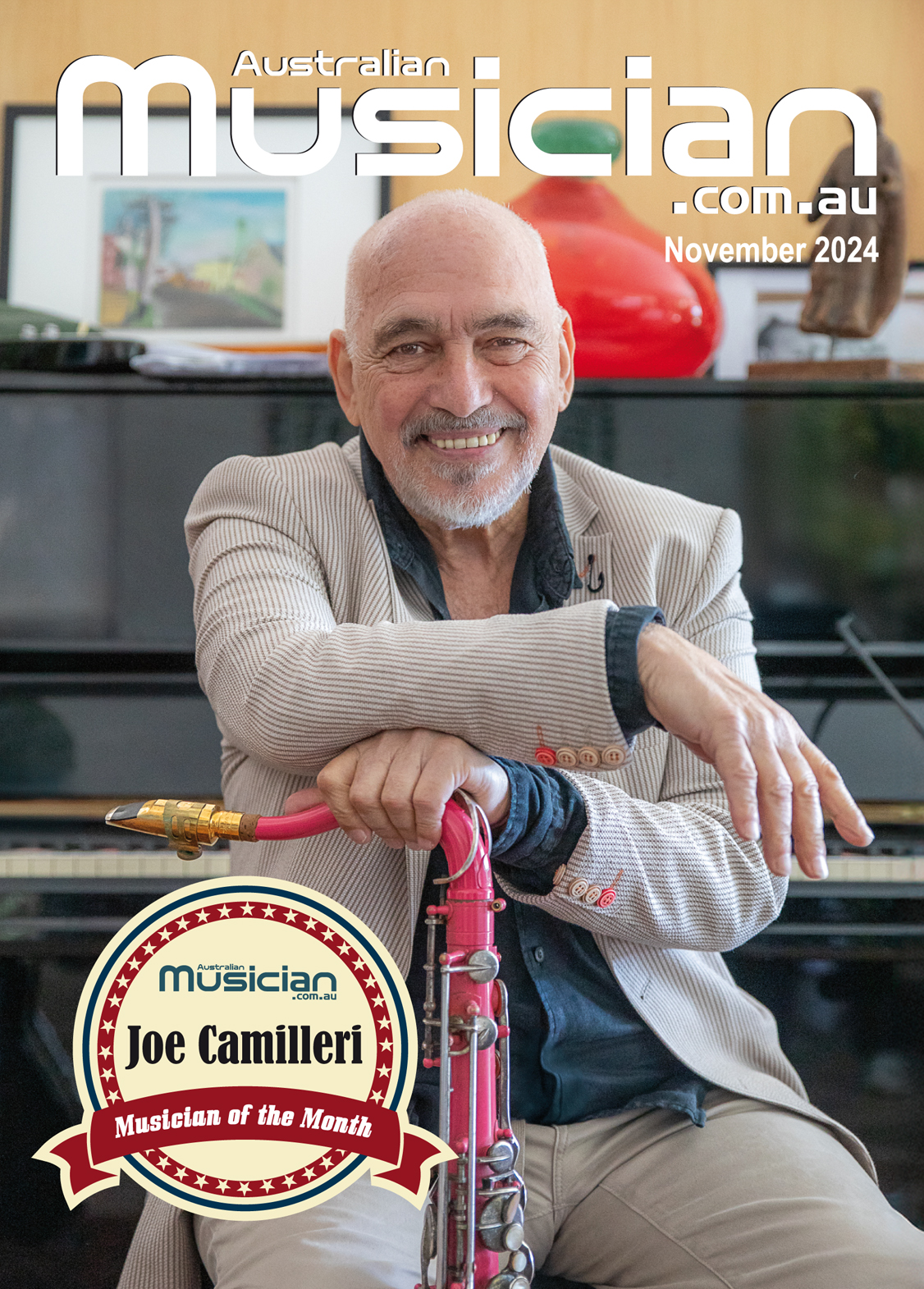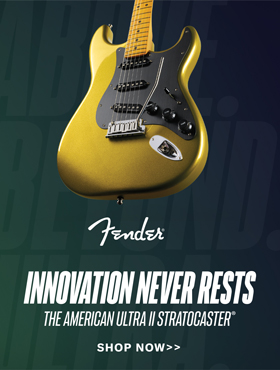LARRY CARLTON & ROBBEN FORD
June 13, 2007 | Author: Marcel Yammouni
Throughout the 70s when fusion was king, Larry Carlton was one of the busiest session guitarists on the planet. He played on
many classic albums by artists as revered as Steely Dan, Joni Mitchell, Billy Joel and The Doobie Brothers. As a jazz and fusion
solo performer his career has been as equally successful netting him three Grammy Awards. Robben Ford also got his start
in the same 70s scene playing with LA Express and The Yellowjackets. However Ford chose more of a blues path, making a
name for himself with his band The Blue Line. Recently they were both in Australia sharing the stage and playing tracks
from their 2006 live release,’Tokyo Bluenote’. AM’s Marcel Yammouni and Juno Roxas tracked the two guitar legends
down for a chat. Pic by Edwina Pickles
 AM: When did you guys first meet?
AM: When did you guys first meet?
RF: It was roughly 1974. Larry couldn’t do the tour with Joni Mitchell for the ‘Court and Spark’ album that he had played on and that’s where I came in. Then Larry came down and helped me out with the LA Express the first time I played their music and kind of showed me what he played here and there. So I ended up doing the tour and somewhere in between that being on and off the road with Joni we got together and hung at Larry’s house. Then we decided to do some shows together in LA and that was probably around 1975.
Your son Larry, Travis Carlton is with you on this tour. Can you tell us a bit about him?
LC: He’s always had a natural gift for Rhythm, since he was a baby. We all live in Nashville Tennessee and my father past away in 2003 in Los Angeles, so we went out for the funeral and Travis had just graduated from high school. While we were out there we went to the Musicians Institute out in Hollywood for him to see that facility. So he wanted to attend, he wanted to go to school to focus on his music cause he had not been focusing on his music in high school.
Did you have a musical family growing up?
LC: My Mom played guitar as a teenager growing up and her Father played fiddle. So there was an old acoustic guitar lying around in my grandmother’s house and my folks told me I was just fascinated with it at four years old, but I was too small to hold it so when I was big enough I started taking lessons.
Can you tell us about your rigs?
RF: Larry has his whole rig with him on this tour and I brought just my head. It turns out that my speaker cabinets were way over-weight to bring out here, so I just left ’em behind and the first show we played I just used the two twins. I didn’t even use the Dumble head. I just daisy-chained the two amps. I use a pedal called the Zen Drive and a Volume pedal and run them into the amp, and out of that amp into the other. I’m playing a 57 Gold top which Larry actually gave to me to play for as long as I wanna play it so I have that with me. With some of the instruments I’ve had built, I have a pick up splitter, it’s just a switch that makes the pick ups single coil. It’s not an out of phase thing which is what I use to control my volume… with the pick ups halved, the gain’s decreased and I can play rhythm guitar and I really like that a lot. Also I use the treble pick up a lot, almost exclusively. Seventy-five percent of the time I’m on the treble pick up at least.
Can you describe some of the characteristics of the Dumble Amplifier?
RF: Both Larry and I have described it as having a perfect curve. The low end is deep but not woofy or too dark. The mid range is punchy, it just shoots right out. The treble is not brittle, it’s bright and clear and just solid.
LC: I agree with everything with Robben just said there, I’ve used the Dumble for about 25 years. The thing I noticed is the amount of headroom that it has and the sound doesn’t clamp down as most amps do when you put more transients through it . So it stays open which makes it sound expensive like a great stereo system you know, you can turn it as loud as you want and it never compresses and that’s one thing I like because I don’t play very loud at most of my gigs. My amp is on four and three and it just stays wide open. I use no pedals just straight into the Dumbulator, which is the Dumble effects loop.
Can you talk about developing your tone?
LC: The thing about tone is that the closer you become one with your instrument, it becomes sounding like you. Robben can plug into my amplifier and sound like Robben Ford and I can plug into his and you’re gonna say that’s Larry Carlton. It’s about who we are with the instrument and that comes from having the gift but also many, many years of playing and finessing the way we touch he instrument.
Later on we found out for both the Sydney and Byron Bay shows, Larry and Robben used locally produced Ulbrick amplification and pedals. They’ve ordered a bunch of stuff which I’m sure Dave and all the guys at Ulbrick Sound would be more than happy to discuss if you give them a call.


